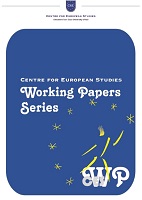UNCERTAINTY IN NEOCLASSICAL AND KEYNESIAN THEORETICAL APPROACHES: A BEHAVIOURAL PERSPECTIVE
UNCERTAINTY IN NEOCLASSICAL AND KEYNESIAN THEORETICAL APPROACHES: A BEHAVIOURAL PERSPECTIVE
Author(s): Sinziana BaltatescuSubject(s): Economy
Published by: Editura Universităţii »Alexandru Ioan Cuza« din Iaşi
Keywords: Neoclassical approach; Keynesian approach; uncertainty; bounded rationality; behavioural economics
Summary/Abstract: The ”mainstream” neoclassical assumptions about human economic behavior are currently challenged by both behavioural researches on human behaviour and other theoretical approaches which, in the context of the recent economic and financial crisis find arguments to reinforce their theoretical statements. The neoclassical “perfect rationality” assumption is most criticized and provokes the mainstream theoretical approach to efforts of revisiting the theoretical framework in order to re-state the economic models validity. Uncertainty seems, in this context, to be the concept that allows other theoretical approaches to take into consideration a more realistic individual from the psychological perspective. This paper is trying to present a comparison between the neoclassical and Keynesian approach of the uncertainty, considering the behavioural arguments and challenges addressed to the mainstream theory.
Journal: CES Working Papers
- Issue Year: 7/2015
- Issue No: 3
- Page Range: 682-688
- Page Count: 7

